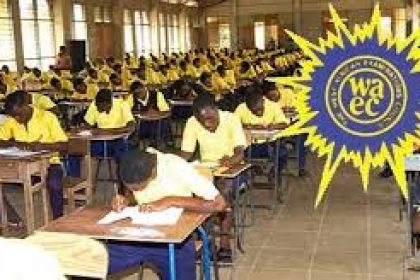
The Federal Ministry of Education has made it clear that it has not prohibited pupils under the age of eighteen from taking the National Examinations Council and the West Africa Senior School Certificate Examination.
Dr. Yusuf Sununu, the Minister of State for Education, provided the explanation on Friday in Abuja while answering questions from the media during an event commemorating the 2024 International Literacy Day.
Sununu expressed her disappointment at the public’s misperception and misreading of remarks made by Prof. Tahir Mamman, the Minister of Education.
According to him, the minister was discussing the 18-year-old admission age to postsecondary institutions, which is in line with the 6:3:3:4 educational system.
It has been decided that it will be treated as a work-in-progress. Both the National Assembly and we are at work.
The news that a university in this nation admitted kids who were 10, 11, and 12 years old startled me. This is entirely incorrect.
We are aware that there are exceptional pupils who, even at the ages of six or seven, possess an adult-level IQ, but these are the exception rather than the rule.
“There needs to be a standard, and the ministry is working on creating one on how to recognise a gifted child so that parents won’t complain we’re preventing their kids from succeeding.
“No one stated that a youngster will take the WAEC, NECO, or any other exam until they are eighteen years old. This is a misinterpretation of our statements and a misconception,” he declared.
In her speech on International Literacy Day, Sununu emphasised the vital role that literacy plays in promoting socioeconomic growth, peace, and understanding among people.
He emphasised the federal government’s commitment to using the Education for Renewed Hope roadmap (2024–2027) to solve literacy difficulties.
He emphasised the value of employing learners’ mother tongues as the primary language of instruction while highlighting youth and adult literacy as essential components.
In order to promote peace and understanding among people, he continued, “we must concentrate on the role that a learner’s first language plays in becoming literate.”
He also underlined the importance of hiring qualified teachers who are prepared to instruct in the native tongues and the creation of reading materials for follow-up in these languages.
Prof. Simon Akpama, Executive Secretary of the National Commission for Mass Literacy, Adult and Non-formal Education, reiterated the commission’s commitment to including multilingual education within literacy curricula in schools.
He declared, “Multilingual education is not just a necessity in an increasingly interconnected world, it is a tool for fostering peace and cultural respect.”
In the meantime, Mr. Diallo Abdourahamane, the country representative for UNESCO, reiterated that literacy is still a fundamental human right and that building a just, peaceful, and sustainable society is therefore necessary.
The ILD, which is observed on 8 September every year, is meant to raise awareness of the value of literacy for people as individuals, as well as for communities and societies as a whole, according to the News Agency of Nigeria.
“Promoting Multilingual Education: Literacy for Mutual Understanding and Peace” is this year’s celebration’s topic.

